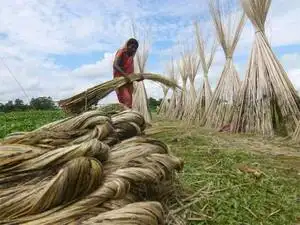E-nose technology to determine quality of agri products in Bengal
, ET Bureau|
Jan 04, 2018, 06.12 PM IST

Bengal government will take help of electronic nose (E-nose) technology to determine the quality of aromatic rice and pulse varieties that the state government buys from farmers to be sold at - Sufal Bangla- fair-price outlets across the state..
The E-nose technology will be introduced at the government's state-of-the-art quality control laboratory in Singur to ensure the quality of aromatic rice varieties. A senior official of the state agricultural department explained that different varieties of aromatic rice have different aromas - for example, Kalo Nunia has a mild smell while Gobindobhog is known for its strong smell. "What was done till now by humans would, to ensure uniformity, soon be taken over by technology," he said.
Another technology named Pulse View will be introduced at the Singur laboratory for assessing the quality of pulse. According to the agricultural department officals, vegetables, rice and pulses will all be tested in the laboratory before being sent to the Sufal Bangla outlets in the city.
The aim is to ensure that only the best products are sold at these outlets. In this connection, The number of Sufal Bangla have been increased recently - 22 new mobile stalls have been introduced, adding to the existing 16 permanent and 29 mobile stalls.
The E-nose technology will be introduced at the government's state-of-the-art quality control laboratory in Singur to ensure the quality of aromatic rice varieties. A senior official of the state agricultural department explained that different varieties of aromatic rice have different aromas - for example, Kalo Nunia has a mild smell while Gobindobhog is known for its strong smell. "What was done till now by humans would, to ensure uniformity, soon be taken over by technology," he said.
Another technology named Pulse View will be introduced at the Singur laboratory for assessing the quality of pulse. According to the agricultural department officals, vegetables, rice and pulses will all be tested in the laboratory before being sent to the Sufal Bangla outlets in the city.
The aim is to ensure that only the best products are sold at these outlets. In this connection, The number of Sufal Bangla have been increased recently - 22 new mobile stalls have been introduced, adding to the existing 16 permanent and 29 mobile stalls.